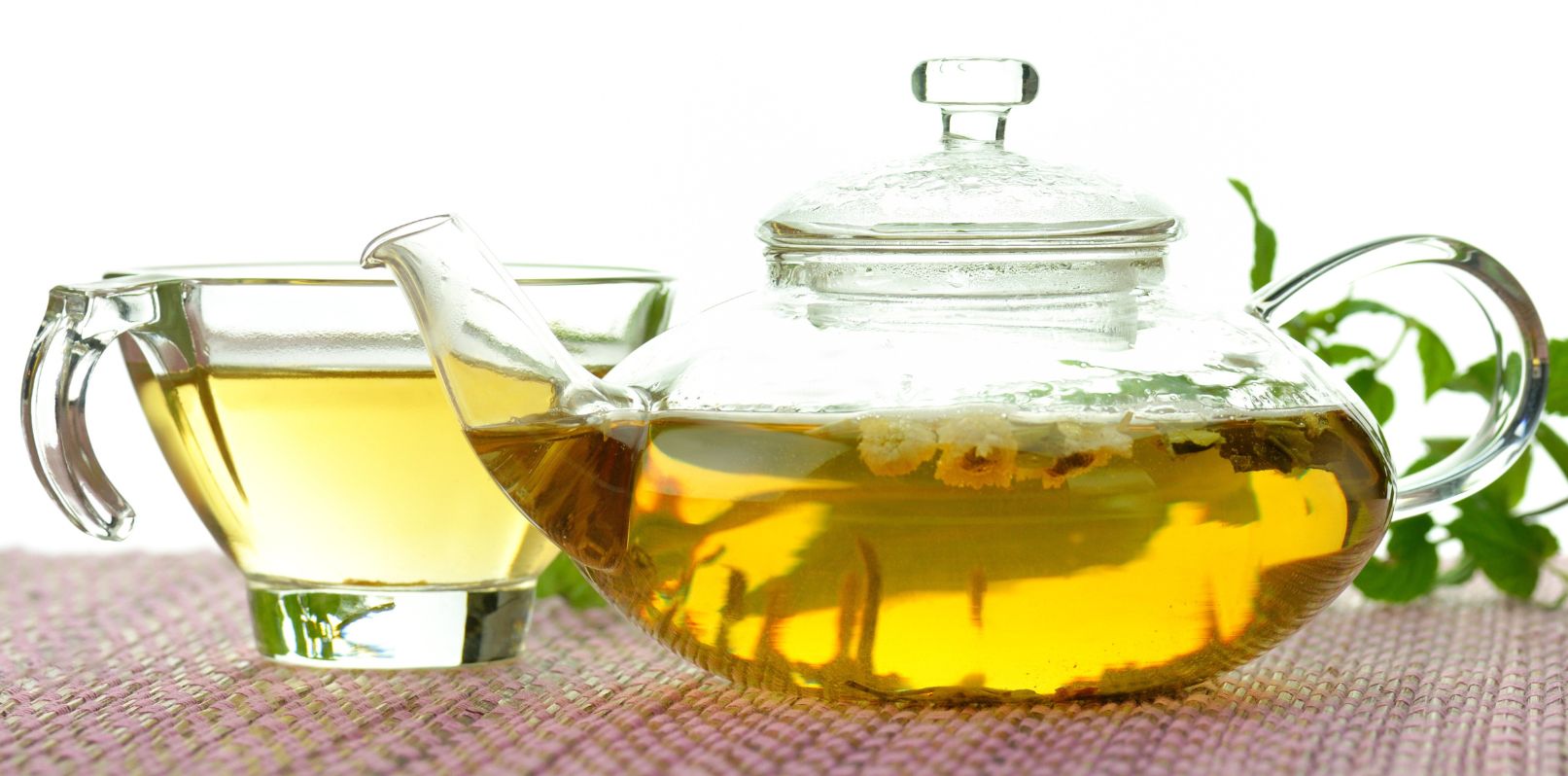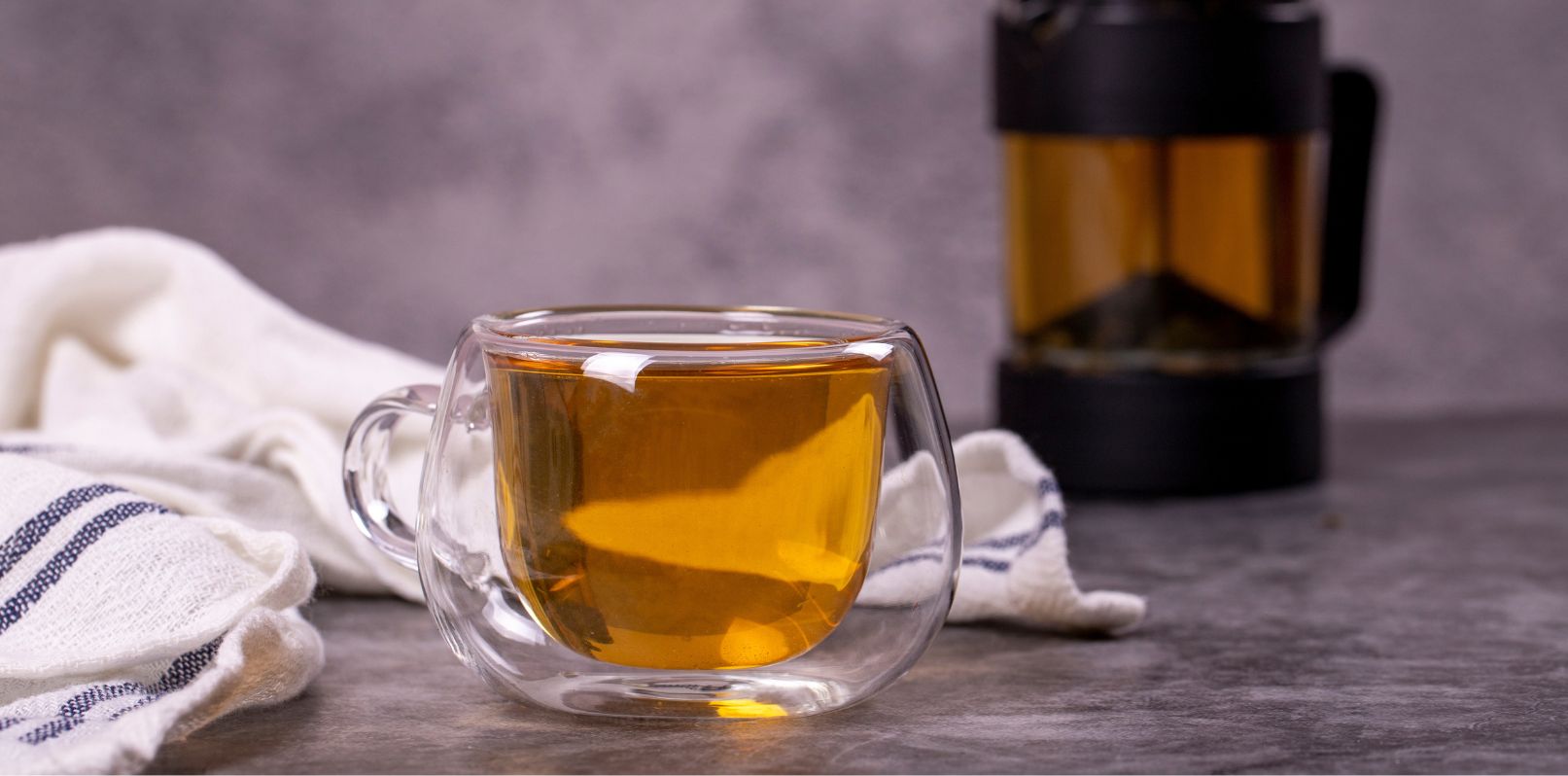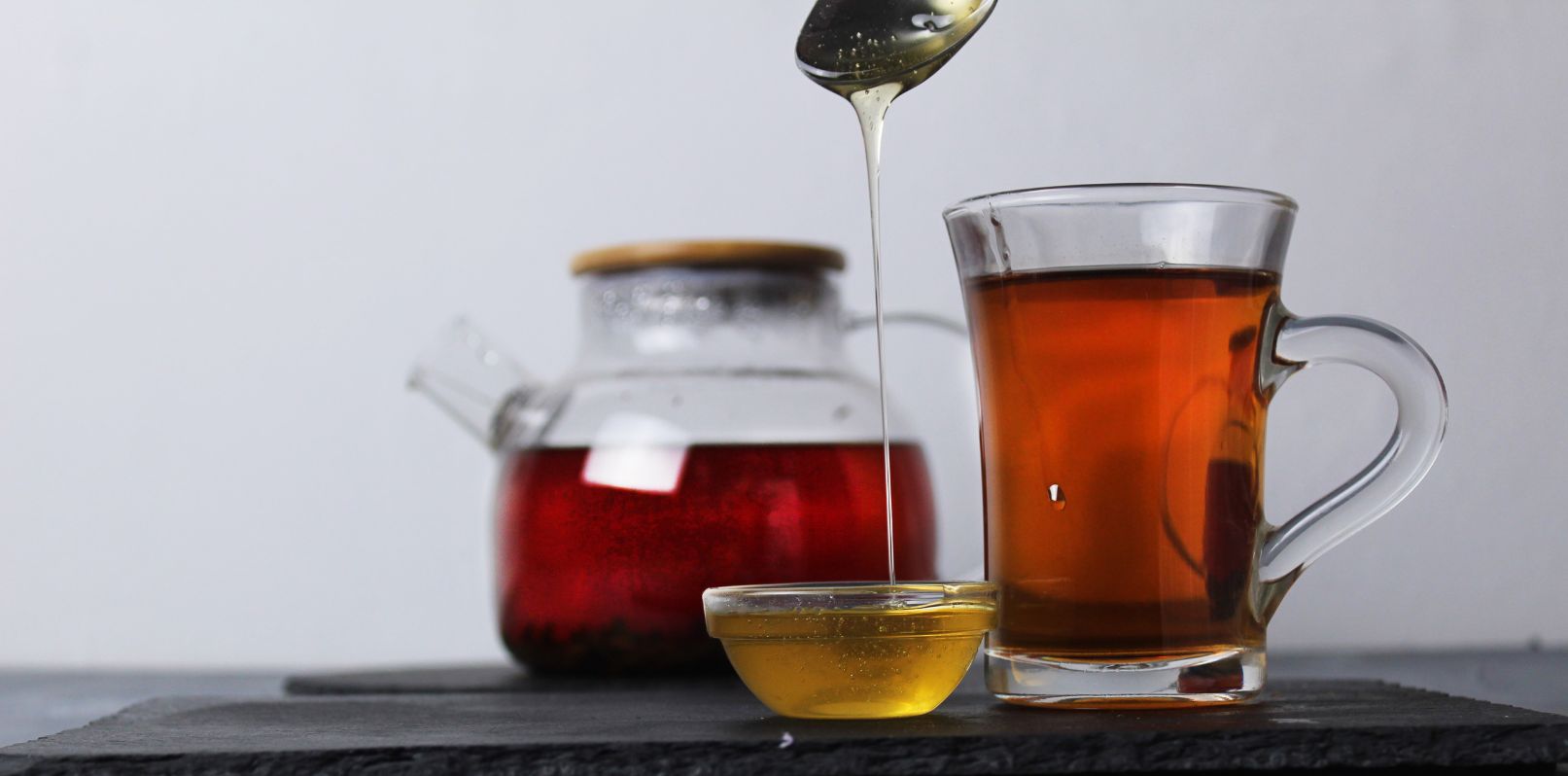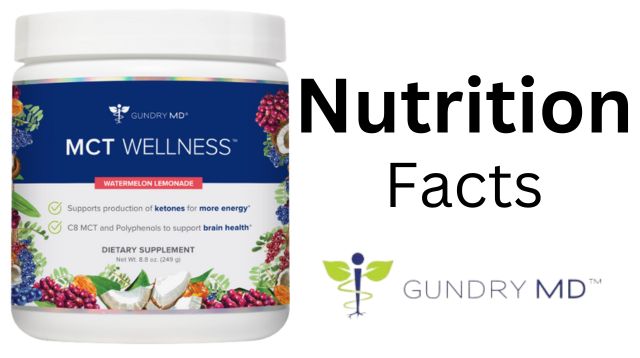MCT Oil Benefits: Why People Are Adding it to Their Tea

MCT Oil: What Is It?
MCT oil, or medium-chain triglyceride oil, is a rising star in the nutritional world. It's most commonly sourced from the concentrated goodness of coconut oil.
This “super oil” is made up of medium-chain fatty acids (MCFAs) which, unlike their long-chain cousins found in foods like avocados and nuts, are more quickly digested. This means that these medium-chain fats act faster to bring potential benefits to the body.1
As MCT oil is concentrated from coconut oil, it contains 100% MCTs, while coconut oil contains around 50% MCTs. It most often contains just two of coconut oil’s four MCTs – caprylic acid (C8) and capric acid (C10) – which are both quickly absorbed into the bloodstream.2,3
Finally, there's also MCT powder, which is essentially MCT oil converted into a more convenient, easy-to-carry form that’s perfect for those on the move.

Why People Are Adding MCT Oil To Their Tea
So, why would people want to add MCT oil to their tea?
Well, when it comes to MCT oil, there are a whole host of potential benefits that are being researched. And, because MCT oil is usually tasteless (or lightly flavored), it’s not the same as throwing strong-tasting olive oil into your drink.
In fact, MCT oil is so versatile, it can be mixed into all sorts of drinks. Here are some of MCT oil’s potential benefits.
1. MCTs May Help Support Energy And Focus
MCT oil has the potential to be an instant source of energy because it’s so easily absorbed into the bloodstream. As MCTs are then (potentially) converted into ketones in the liver, this may provide better, more efficient “brain energy.” This could be a great help in supporting focus and concentration at work and play.4,5
2. MCTs May Help Support Weight Management
MCTs, medium-chain triglycerides, pack a potent punch that could help support weight management in several ways:
- Clinical studies have suggested that consumption of MCTs may lead to greater energy expenditure than consumption of LCTs (like olive oil).6
- Because MCTs travel so quickly into the bloodstream, they may be less frequently stored as fat compared with other oils.7
- MCT oil may have a high burn rate in the body, boosting the number of calories burned after meals.8
- MCTs are often described by researchers as “ketogenic” (even without carbohydrate restriction). This effect has predominantly been seen with caprylic acid (C8). And, ketones burn fats.9.10
- Increased ketone production may also make some people feel less hungry.11
3. MCTs May Help Support Brain Function
People often swirl a dash of MCT oil into their morning tea for a not-so-secret reason – to help support their brain function. Let's break it down.
- MCT oil might stimulate the production of ketones (highly efficient energy sources for the brain.) And ketones have shown an ability to help support cognitive function and brain health in both older and younger adults.12,13
- But the effect of MCT oil goes beyond brain performance – it might actually have some protective effects on your brain, which could help support overall brain health.14
While more rigorous studies are necessary, this potential certainly makes MCT oil a product of interest in neuroscience.
4. MCTs May Help Support Healthy Blood Sugar Levels
Another great potential health benefit of MCT oil is that it may make it easier to keep blood sugar at safe levels.
This could have a huge impact on how people keep their blood sugar levels in check. As MCT may also have an impact on weight management (as seen above), this could also be helpful for people with weight loss goals as part of a healthy diet.15

How To Add MCT Oil To Your Tea
Step 1: Select the right MCT oil for your tea.
Choosing the right MCT product for your tea is essential. The quality of the MCT oil can impact not just its potential benefits, but also the overall flavor of your tea.
So, how do you pick the right MCT oil or powder? Here's a quick guide:
- **Understand its Origin**: MCT oils can be derived from coconuts, palm oil, or a mix of both. Coconut-derived MCT oil is considered the best choice, because palm oil continues to be a major driver of deforestation – destroying many of the world’s most biodiverse forests.16
- **Beware of Fillers**: Companies sometimes bulk up their products with fillers that do nothing for you. MCT oil should not contain any fillers, and MCT powder should not contain any maltodextrin-based carriers. Instead, look for powders that use natural, fiber-based carriers (like acacia fiber) that are necessary to turn MCT oil from liquid to powder form.17
- **Check the MCTs**: A good MCT oil should contain C8 (Caprylic Acid) by itself or alongside C10 (Capric Acid). Look for products highlighting these MCTs on their labels.
- **Ease into it **: Start with a half dose in your tea. Gradually increase to allow your body to adjust to the high-fat load.18
Keep these tips in mind, and you'll enjoy a better, more potentially beneficial cup of tea in no time.
Step 2: Add MCT oil to your tea.
Here's a simple way to incorporate MCT oil into your tea. Let's dive straight in:
- Start with a steaming cup of your favorite tea. Steep the tea bag in hot water for about 5-7 minutes. Feel free to adjust the steeping time according to your flavor intensity preference.
- Next, it's time to churn in the magic. Add the MCT oil.
- The key to a perfect blend of tea and MCT oil lies in your stirring technique. Yes, you can just stir it. But, why not use a milk frother or hand blender for a really lovely well-incorporated, creamy consistency?
- Now, taste your tea. If it hits the right notes, you can enjoy your tea as is. If not, feel free to add a sprinkle of your favorite sweetener, like stevia, chicory root, allulose, or monk fruit to balance out the flavor. Remember, the end goal is to make sure your tea is not just nutritious but also delicious!
Step 3: Enjoy your MCT-infused tea.
Now comes the best part – savoring your MCT-infused tea. Wrap your hands around your warm cup, and take a moment to appreciate the unique blend you've created. Gently stirring your tea occasionally as you drink it can help ensure the MCTs remain thoroughly mixed.

Final Thoughts
The popularity of adding MCT oil to tea can be attributed, in part, to all of these wonderful potential benefits – but, why stop at tea? Mix it up during the week to keep things interesting. Try adding MCT oil to your coffee, your favorite smoothie, or a protein shake. You could even just stir it into a glass of your morning lemon water.
Sources
- https://www.health.harvard.edu/blog/is-there-a-place-for-coconut-oil-in-a-healthy-diet-2019011415764
- https://www.ncbi.nlm.nih.gov/pmc/articles/PMC4882694/
- https://www.health.harvard.edu/blog/is-there-a-place-for-coconut-oil-in-a-healthy-diet-2019011415764
- https://link.springer.com/article/10.1007/s13197-022-05499-w
- https://www.ncbi.nlm.nih.gov/pmc/articles/PMC4669977/
- https://pubmed.ncbi.nlm.nih.gov/18326600/
- https://www.healthline.com/nutrition/mct-oil-101#:~:text=Since%20the%20MCT%20is%20digested,eventually%20be%20stored%20as%20fat.
- https://pubmed.ncbi.nlm.nih.gov/2021124/
- https://www.ncbi.nlm.nih.gov/pmc/articles/PMC7175812/
- https://dtc.ucsf.edu/types-of-diabetes/type2/understanding-type-2-diabetes/how-the-body-processes-sugar/ketones/#:~:text=Ketones%20and%20ketoacids%20are%20alternative,and%20during%20dieting%20or%20fasting.
- https://www.ncbi.nlm.nih.gov/pmc/articles/PMC5813183/#:~:text=Conclusions,hunger%2C%20and%20desire%20to%20eat.
- https://alz-journals.onlinelibrary.wiley.com/doi/abs/10.1002/alz.055702
- https://pubmed.ncbi.nlm.nih.gov/33220329/
- https://www.frontiersin.org/articles/10.3389/fneur.2023.1123290/full
- https://pubmed.ncbi.nlm.nih.gov/1568535/
- https://www.wwf.org.uk/updates/8-things-know-about-palm-oil
- https://aapharmachem.com/mct-oil-and-oil-powder/
- https://www.healthline.com/nutrition/mct-oil-101#safety-and-side-effects
Related posts


